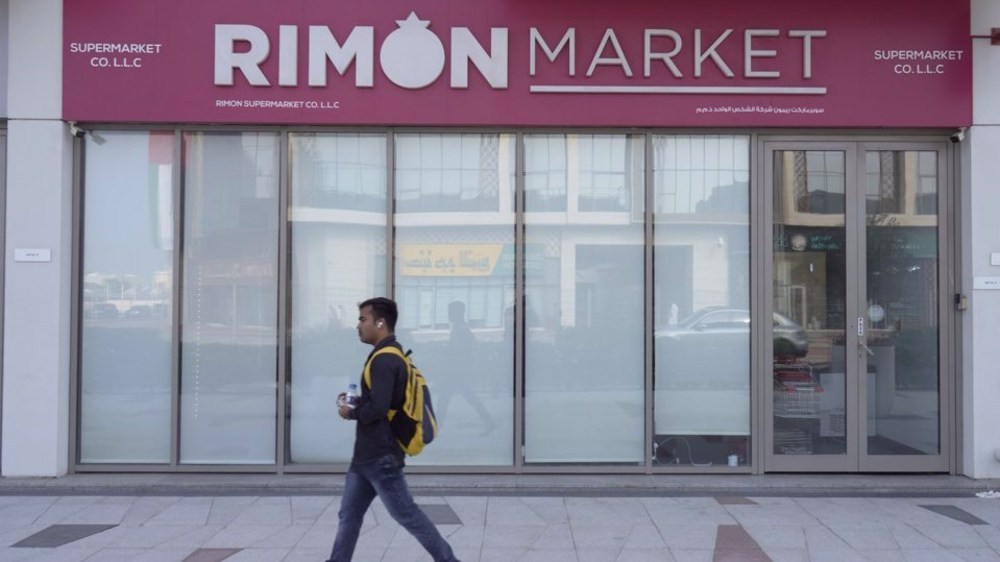Four Arab states reject progress in Kuwait mediation efforts with Qatar
The Saudi-led bloc of four Arab countries which recently severed ties with Qatar have denied statements by the Kuwaiti emir about signs of progress in his mediation efforts to help resolve the diplomatic crisis with Doha.
In a Friday statement released by the state-run Saudi Press Agency, the Saudi-led bloc expressed “regret” over the remarks by Emir Sheikh Sabah al-Ahmad Al Sabah “on the success of mediation in stopping military intervention.”
In a Thursday press conference with US President Donald Trump in Washington, the Kuwaiti emir gave an optimistic assessment of his mediation efforts between Qatar and the four Arab states, including Saudi Arabia, the UAE, Bahrain and Egypt.
The bloc challenged the Kuwaiti emir’s remarks about Doha’s willingness to accept their 13 demands, saying, “Dialogue on the implementation of the demands should not be preceded by any conditions.”
The four Arab countries, however, ruled out the possibility of a war against Qatar, saying, “The military option has not been and will not be considered in any case.”
Saudi Arabia, Bahrain, Egypt, and the United Arab Emirates cut their diplomatic ties with Qatar on June 5, accusing Doha of sponsoring terrorism and destabilizing the region.
The Saudi-led bloc has imposed sanctions against the tiny Persian Gulf country, including restrictions on Qatari aircraft using their airspace. Qatar’s only land border with Saudi Arabia has only been blocked as a result.
The boycotters later released a 13-point list of demands, including the closure of Al Jazeera television news network and downgrade of relations with Iran, in return for the normalization of diplomatic relations with Doha.
Qatar has rejected the demands as an attack on its sovereignty.
On Wednesday, Trump told Saudi King Salman bin Abulaziz Al Saud that a diplomatic resolution was necessary in order to fulfill a commitment Washington and its regional allies had made to stay united while fighting terror.

Meanwhile, experts have touted the Qatar crisis as the fallout of Trump’s visit to Riyadh in early June during which he signed the largest single arms deal in US history with King Salman to sell Riyadh $110 billion in arms.
In the early days of the crisis, Trump took to Twitter to praise the Saudi-led bloc’s decision to cut ties with Qatar, implying that it was the fruit of his first visit to the Middle East.
“During my recent trip to the Middle East I stated that there can no longer be funding of Radical Ideology,” Trump wrote on June 6. “Leaders pointed to Qatar — look!” he tweeted.
Following Trump’s harsh stance, Washington began to send a series of mixed messages on the dispute, with the State Department attempting to distance itself from the president’s comments and urging calm.
On June 14, the US has signed a $12-billion deal to sell F-15 fighter jets to Qatar Qatar’s Ministry of Defense said on Wednesday the country had signed a deal to buy F-15 fighter jets from Washington for $12 billion.
Dec. 22: ‘Axis of Resistance’ operations against Israeli occupation
‘Abhorrent’: Oxfam says only 12 trucks delivered aid in North Gaza since Oct.
VIDEO | Leader receives religious eulogists on Hazrat Fatima birth anniv.
Pope Francis slams Israel’s ‘machine-gunning’ of Gaza children
US hostage-taking of Iranian nationals violation of intl. law: Deputy FM
VIDEO | Carol Singers for Palestine on London’s Parliament Square
Ansarullah says ‘Israeli terrorists’ incapable of confronting Yemen, warns of secret weapons
VIDEO | Yemenis praise the military for its successful operations against Israel












 This makes it easy to access the Press TV website
This makes it easy to access the Press TV website